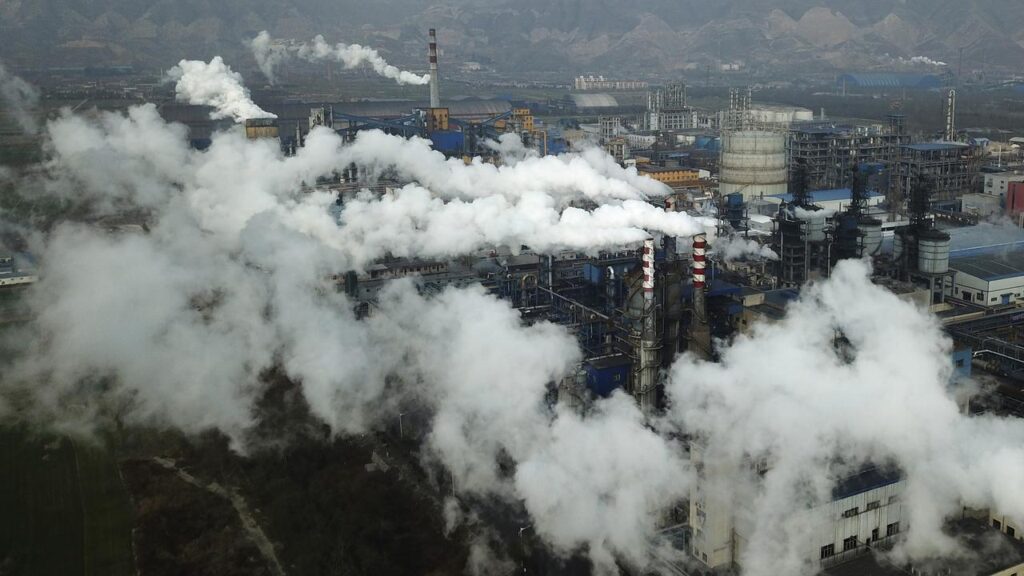China leads nations with climate emissions plan at UN
Valerie Volcovici and Yukun Zhang |

China has led several countries in announcing new climate plans and offered a veiled rebuke of the US president’s anti-climate rhetoric at the UN General Assembly.
Addressing a climate leaders’ summit hosted by UN Secretary-General Antonio Guterres, President Xi Jinping said in a live video message from Beijing that by 2035 China would cut its greenhouse gas emissions by seven per cent to 10 per cent from its peak.

In addition, Xi said China planned to increase its wind and solar power capacity by six times from its 2020 levels within the next 10 years – helping to boost its share of non-fossil fuels in domestic energy consumption to over 30 per cent.
China’s reduction target marked the first time the world’s biggest emitter pledged a cut in emissions, rather than just limiting their growth, though the reduction was less than many observers had expected.
Xi urged stronger climate action from the world’s developed countries. He referred, though not by name, to the United States for moving away from the goals of the Paris Agreement on climate change.
“Green and low-carbon transformation is the trend of our times. Despite some countries going against the trend, the international community should stay on the right track, maintain unwavering confidence, unwavering action, and undiminished efforts,” Xi said.
On Tuesday, US President Donald Trump used his UN General Assembly speech to blast climate change as a “con job”, to call scientists “stupid” and to criticise EU member states and China for embracing clean energy technologies.

Trump ordered a second withdrawal by Washington from the 10-year-old Paris treaty, which aimed to prevent global temperatures from rising beyond 1.5C through national climate plans. The US is the world’s biggest historical greenhouse gas emitter and second biggest current emitter behind China.
Ian Bremmer, a political scientist with the Belfer Centre, said Trump’s climate denial speech had effectively ceded the market for post-carbon energy to the Chinese.
“Trump wants fossil fuels and the United States is indeed a powerful petro-state,” Bremmer said. “But letting China become the world’s sole powerful electro-state is the opposite of making America great again … at least if you care about the future.”
Observers had been hoping that China would seize on the US retreat as a moment to announce a reduction target of at least 30 per cent to stay in line with its past goal of net-zero emissions by 2060.
Li Shuo, director of the China Climate Hub at the Asia Society, said China’s announcement was underwhelming in light of its rapid production of renewable energy and electric vehicles.
“Beijing’s commitment represents a cautious move that extends a long-standing political tradition of prioritising steady, predictable decision-making but also hides a more significant economic reality,” he said.
Despite pressure for significant new climate commitments ahead of this year’s COP30 summit in Brazil, Wednesday’s announcements failed to impress.
Environmental groups and observers said pledges by some of the world’s biggest economies fell well short of where they should be in emissions reductions, given the rapidly worsening impacts of climate change.
The European Union has not yet reached agreement on its new UN-mandated climate target, instead drafting plans to submit a temporary goal, which could change.
Australia, which plans to host a 2026 UN climate summit, announced a pledge that by 2035, it would slash greenhouse gas to between 62 per cent and 70 per cent below 2005 levels.

The South Pacific island nation of Palau, representing the 39-member Alliance of Small Island States, announced its own goal of slashing emissions to 44 per cent of 2015 levels by 2035.
Palau’s President Surangel Whipps reminded leaders of the advisory opinion issued by the International Court of Justice earlier this year affirming an “obligation grounded in international law” for countries to take stronger measures to curb their emissions.
“Those with the greatest responsibility and the greatest capacity to act must do far more,” he said.
with Reuters and AAP
AP